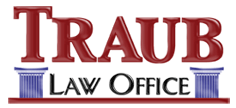The Telemarketing and Consumer Fraud and Abuse Prevention Act (the Act) became Federal law in 1994. It is intended to combat telemarketing fraud by giving law enforcement agencies new tools for fighting fraud; give consumers added privacy protections and defenses against unscrupulous telemarketers; and to provide guidance to consumers in distinguishing fraudulent from legitimate telemarketing.
- Banks, federal credit unions, and federal savings and loans.
- Common carriers, e.g., long-distance telephone companies and airlines, when they are engaging in common carrier activities.
- Non-profit organizations.
- Insurance companies regulated by state law.
- Some calls made in response to a catalog, general media, or direct mail advertising.
- 900-number calls, which are on a “pay-per-call” basis.
- Unsolicited calls to “telemarketers” from consumers.
- Calls that are part of transactions involving a face-to-face sales presentation.
- Calls relating to the sale of franchises or certain business opportunities.
- Business-to-business calls not involving non-durable office or cleaning supplies.
- Required disclosure of “material information” that would affect and be necessary for an informed purchasing decision. Examples include: identity of the seller; that the purpose is to sell goods or services; the nature of the offered goods or services; in the case of a prize promotion, that no purchase is necessary to participate or win; cost and quantity of goods; and material restrictions, limitations, or conditions on purchase.
- Prohibition on any false or misleading statement to induce a consumer to pay for goods or services, including misrepresentations about “material information.”
- Setting payment restrictions for the sale of certain goods and services and a prohibition on unauthorized billing.
- A prohibition on specific “abusive” practices, such as: repeated or continuous calls to annoy, abuse, or harass; the use of intimidation, threats, harassment, and profane language; calls after a consumer requests no more calls or is on the National Do Not Call registry; calls to a residence before 8:00 a.m. or after 9:00 p.m.; and payment restrictions for the sale of some goods and services. Also, under the amended TSR, telemarketers must transmit their phone numbers for purposes of “caller I.D.” and, when made available by the telemarketer’s telephone company, provide their name.
- A requirement that certain business records be kept by telemarketers for at least two years, for example: advertising and promotional materials; information about prize recipients; sales records; employee records; and verifiable authorizations for “”demand drafts”” (allowing payment directly from a consumer’s bank account).
